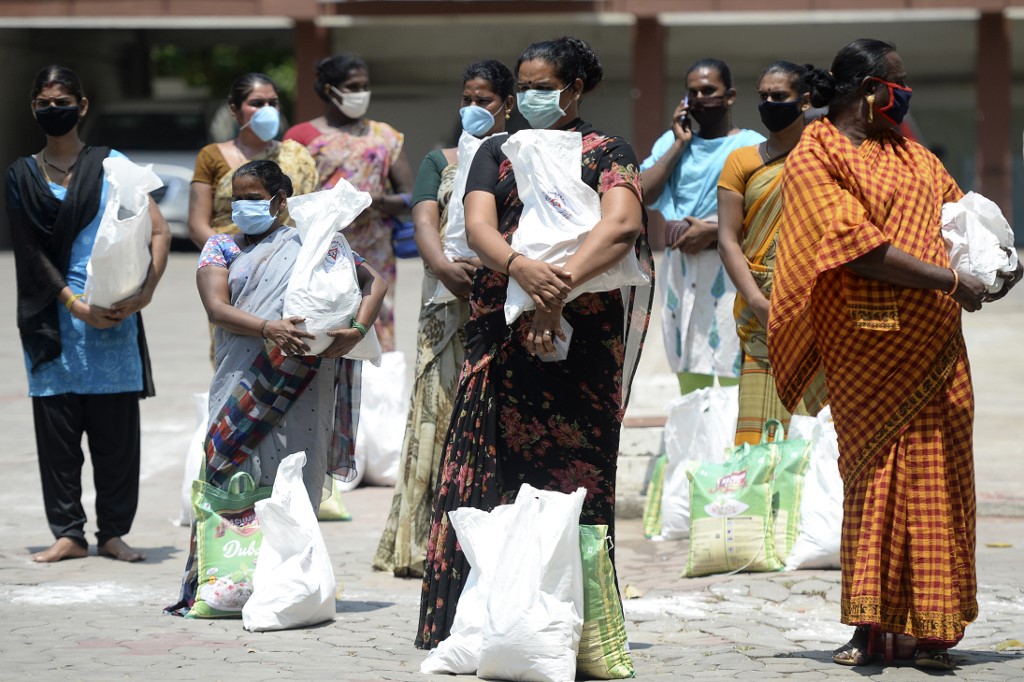
Transgender people stand maintaining social distancing as they receive free food distribution during a government-imposed nationwide lockdown as a preventive measure against the COVID-19 coronavirus, in Chennai on May 01, 2020. (Photo by Arun SANKAR / AFP)
NEW DELHI — Health officials are rushing to contain the spread of the coronavirus in India’s southern city of Chennai, where a large cluster has been identified among people at one of the country’s largest markets for fruit, vegetables and flowers.
The busy Koyambedu market, with 500 shops spread over 250 acres, is central to the food supply chain in Tamil Nadu and neighboring states. It had remained open through India’s nationwide lockdown, and hundreds of traders visited regularly until the market was shut on Monday after the viral cluster was detected.
Some 7,000 people connected to the market were being traced and quarantined, J. Radhakrishnan, the nodal officer for COVID-19 in Chennai told The Associated Press late Tuesday.
A list of those potentially infected was shared with other districts since many people exposed to the virus had returned to their homes in different districts in the region, Radhakrishnan said. “Most of them have been quarantined,” he said.
Chennai now has 2,008 cases, with 545 of them detected in two days. Tamil Nadu has confirmed 4,058 cases and many of its fresh cases were linked to the market, the state government said in a statement.
Radhakrishnan said the government was “aggressively testing” to try and ensure that customers, whose visits to the market had not been tracked by the public health machinery, would also be identified.
The market cluster contributed to India’s biggest single-day increase in virus infections yet, 3,900 cases and 195 deaths from COVID-19. Those figures reported Tuesday brought India’s totals to over 46,700 cases in all and 1,583 dead. The health ministry attributed the spike to reporting delays by state governments, but experts remain worried.
They credit the strict, six-week lockdown with giving India time to prepare hospitals, equipment and personnel and to ramp up testing, but they still wonder if it will be enough to avert catastrophe in a country with limited medical care and vast poor among its 1.3 billion people.
The government eased the lockdown on Monday, allowing some movement and business to resume in areas less affected by the virus while maintaining strict measures in hard-hit areas like New Delhi and Mumbai.
The surge of people gathering at reopened liquor shops prompted authorities in Mumbai to close them since police had difficulty controlling the crowds. The city, India’s financial capital, has been the worst hit by the virus, with more than 400 cases reported daily and a total of around 10,000 people infected and 387 dead.
In India’s capital, New Delhi, authorities imposed a special tax of 70% on liquor purchases to dissuade crowds and raise revenue.